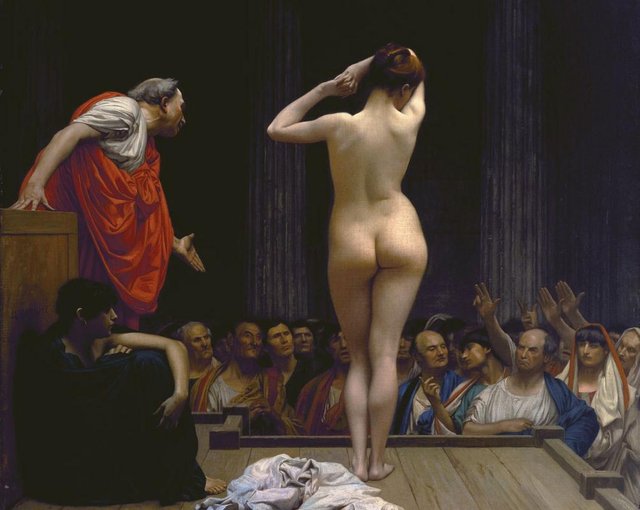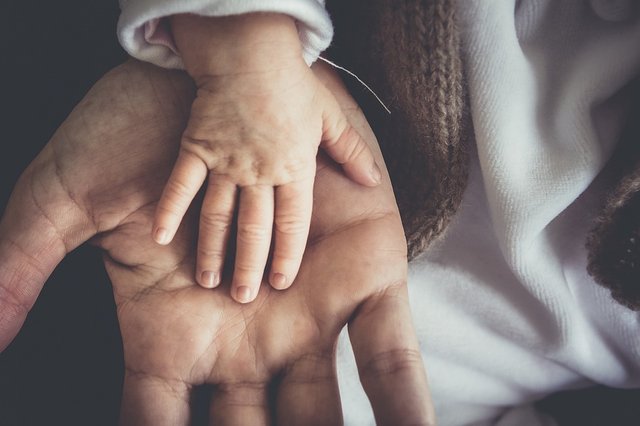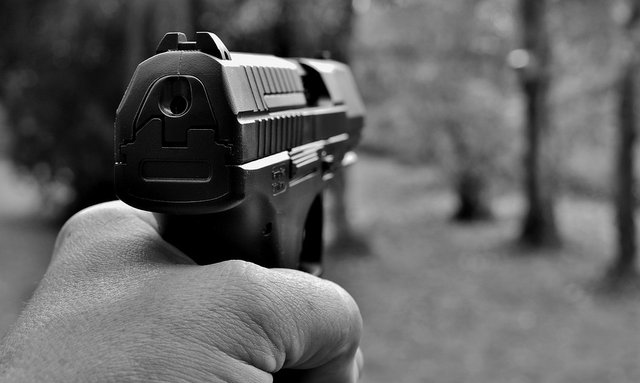What is the value of a human life? Are we really all equal?
The value of a human life has always been one of the most interesting and taboo philosophical topics. Needless to say, the attitude towards it changed radically throughout the history. During the ancient Greek and Roman era, a life of an aristocrat was considered infinitely more valuable than a life of a slave. Today, social norms are gearing towards valuing each human life as equally valuable or not valuing human life at all. However, it seems to me that, although it may sound “inhuman”, “ruthless” and “horrible”, the value of a human life can easily be estimated in extreme situations.
Before we dive any deeper, it’s important to differentiate a couple of points of view. There is a personal point of view – how much is my life valuable to me? There is an individual point of view – how much is that person valuable to me? Finally, there is a collective point of view – how much is a person valuable to his or her family, town, nation, the whole human race, or the whole life on the planet Earth.

Now, let’s start with an example. Imagine this: you are driving a car pretty fast, and all of the sudden you see an old, very sick, barely moving lady on the left side of the road, while on the right side of the road a very young, healthy, smiling girl appears. You see clearly that you cannot pass between them and you know that don’t have enough time to break or to turn enough to avoid them both. The best that you can do is to turn a bit to your left, which will result in hitting and killing the old lady, or to turn a bit to your right, which will result in hitting and killing the young girl. Of course, you could also think “Hey, I’m not God, I don’t want to choose between them” and continue straight killing them both, but for me, this would be a senseless choice. I think that saving the very young, healthy, smiling girl is obviously the right choice. But why is it so? It’s because it’s more altruistic to save someone who has much more potential to enjoy his or her life. In other words, from the personal point of view, our value to ourselves is equal to the potential for enjoyment that we have. By the way, I consider enjoying life and leaving a positive impact to be the two main purposes of a human life.

Now, here’s an example of how a human value can completely change depending on a situation when estimated from the individual point of view. Imagine that you’re alone in a small mountain hut with one door and no windows, and you can choose to bring back to life a famous altruistic scientist with his inventions and blueprints or an infamous war criminal with his AK-47 and a bloody knife. The choice seems obvious, but is it? What if your mountain hut is about to be attacked by an armed madman who plans to kill everyone inside? What’s the point of bringing back to life the famous altruistic scientist if you’ll both get killed in a matter of seconds? Wouldn’t it be better to bring back the infamous war criminal who will probably fight off the armed madman and hopefully spare you (let’s say it’s a war criminal of your own nationality, who likes members of his own nationality)? What can we conclude from this? All human traits are good for some purposes and a value of an individual to us depends highly on what we can get from that individual, which doesn’t have to be much in according to how good is that individual for the rest of the humanity.

For explaining the collective point of view, we should get back to “leaving a positive impact”. I consider that an individual is as valuable to a certain formal or informal group (such as family, town, country, nation, the whole human race, or the whole life on the planet Earth) as much as he can positively impact it. For example, if you are a productive, positive person with a great sense of humor that tends to help others, you are very valuable to most of your groups as you will make life better for their members. On the other hand, if you are a violent, ill-mannered criminal, the world would generally be a better place without you and the only group that may have benefits from you is your criminal gang. Collective point of view is what most people think about when they estimate someone’s value, but we should not forget that it’s not the only important point of view.

To boldly sum it up, I believe that the “overall” value of our lives mostly depends on two aspects:
- How much more enjoyment than suffering we have a potential to experience during the rest of our life
- How much more enjoyment than suffering we have a potential to create for other human beings and life in general during the rest of our life
What do you think? I’m I nuts? :D
Have a wonderful day, week, and life!
Hello @lifenbeauty :)
You have presented very challenging moral dilemma scenarios here! But, I disagree with your view of placing value on lives based on the amount of enjoyment that can be obtained from them :)
Precisely because of what you, yourself, wisely stated here:
😉❤ Have a great weekend my dear !
Hello, spooky-writer! ; )
Thank you for joining the discussion! ❤
There are probably indefinite variables which can be used to place value on lives. To make it simpler, I've inexpertly tried to differentiate between three imaginary point of views, including "personal" (what is the value of my life to me), "individual" (what is the value of that person's life to me) and "collective" (what is the value of that person's life to our society).
When I was speaking about placing value on lives based on the amount of enjoyment that can be obtained from them I was referring to the first and third point of view (how happily can I live, how much happiness can that person bring to our society as a whole), while the "All human traits are good for some purposes and a value of an individual to us depends highly on what we can get from that individual, which doesn’t have to be much in according to how good is that individual for the rest of the humanity." was referring to the second point of view (how valuable is that person to me, meaning that although a person might me very valuable or invaluable from a "collective" point of view, it might be the opposite from our "individual" point of view).
If this is still wrong for some reason please let me know, I appreciate nothing more on Steemit than when somebody manages to improve my way of thinking. ^^
Oh! Thank you for taking the time to make things clear for me. I trully appreciate it 😊
Eaxtly my words, thanks for your comment. At times we value people more than our own life, though they bring us fear and sadness, also enjoyment is not what makes life its self valauble.
Happy day @lifenbeauty
From my point of view, the true Value of Life is when we choose to live according to our values, principles and the attitude we have. Without caring how other people want or think, in what way do we have to live?
Live from our being in the here and now. Namasté
I like your point of view, @evesweetpassion. We are all different and we should learn to live in the present moment and stay true to ourselves. Namasté! : )
What is the value of a human life? Are we really all equal? This post has been resteemed by the @resteemmuse.
Thank you, @resteemmuse. : )
I cannot fault your logic except in regards to the granny/girl scenario.
I know plenty of grannies that have more potential for enjoyment than suffering than many young girls.
She could be a saint upon whom many thousands of people depend for their own happiness. And just real talk this girl could be a total bitch, self centered and greedy with exactly zero chance to effect positivity in the world.
Human value absolutely boils down to the three categories you listed, but ultimately it's who determines the criteria that determines each ones value, no?
Hey @naturowlmystic, thanks a lot for the meaningful comment!
I agree that there are always exceptions, like the excellent example presented in your comment, but if you would simply have to quickly choose between saving a young, healthy, smiling girl or an old, very sick, barely moving lady (and you don't know other details about them), wouldn't you choose saving the young girl?
I fully agree with this and I believe that it's completely impossible to set perfect (or near perfect) criteria for this. That's probably the reason we usually stick to not comparing the value of different human lives, except when absolutely necessary in extreme situations.
Absolutely. And I must answer honestly: I have no idea how I would handle any of the abovementioned scenarios.
As I child I imagined all sorts of life or death situations and wondered how I would react to each one. I almost never was the hero in my mind.
I was so frightened of being killed by a gun that I figured a gun in my face would make me pee myself with fear. Now I'm 36 and on three separate occasions I've had the misfortune of staring down the barrel of a gun, and my reaction every time was completely different to my imaginings.
All I can say is that I hope nobody ever has to make a choice like this (hope in one hand and poop in the other and see which one fills up first as my dad would say) and I am thankful that up until now I've never had to knowingly decide the fate of another human.
I've swerved over animals before to avoid great damage to other life or property and felt really quite sad about it. I can't imagine what killing a person (without powerful motive [not a defense of murder just understanding]) to save another.
Jeez I'm a ramblin again. Thanks for making me think a bit more outside my head today as concerns death. My own is a usual meditation for me but I never ponder the choice of life or death over others.
Basically, all lives are equal beyond any measure. The examples you stated here are very specific and define only human preferences in very specific situations, lets say you are in a war you are going to defend your mates even if they are criminals and not bringing any use to others while you would attack your enemies even if they lovely and useful and being joy to their families. This example is specific also.
Another point I would like to outline, the value of a human life shouldn’t depend on how much joy it brings to others, because it implies selfishness and utilitarianism.
Thank you for the thoughtful comment, @alignment. I agree with you that the second - "individual" point of view is rather selfish.
That said, my personal "goal" in life is to live happily (enjoy life) as much as I can and help others to live happily (enjoy life) as much as I can. Following that philosophy (I'm not claiming that it's the only one or the right one), if I had to value my life, I would do it by thinking about how much joy can I bring to myself and others.
You are welcome dear friend🙂,
I belive that one of the most needed concepts today is the equality of human lives, regardless of any other considerations. It has the potential to bring us more peace.
I fully agree with you that all human lives should be regarded as equal - but it's too hard for me not to philosophize about controversial issues! : D
We are all equal, humans assign value not nature...
Great philosophical post! and not nuts at all...If we all thought about how we can help others enjoy their lives, then the world would e a much more abundant place. I always think that if we tapped into the skills of criminals on the black market, we would learn a hell of a lot too! Everyone is born with something to offer, if we all supported each other to get the best out of life the world would be a more beautiful place!
Thank you, @sarahewaring! I agree with you, we can learn from virtually everyone and your comment about learning from criminals reminds me of "Catch me if you can" with Leonardo DiCaprio and Tom Hanks. : )
The term “value” must be qualified by what standard of assessment is being used. The discussion you’ve presented suggests a utilitarian viewpoint whereby value is being determined relative to a perceived potential for good. In a broader, categorical sense, all human life is equal in that each is a single individual living being - no more, no less.
This latter perspective corresponds with the extant phenomenon of natural law morality (the cause-and-effect of human behavior). Murdering any individual is immoral, yielding undesirable consequences, regardless of who they are (remembering that defensive force - even deadly force - is not immoral). With this in mind, it behooves us to adopt the categorical perspective, as it better mirrors fundamental moral principles which are essential to mankind’s ability to survive and thrive.
But of course, if a catch 22 decision must be made, the utilitarian view can lend some rationality to the choice.
Value is relative to worth which is subjective therefore we are all equal until one proves to be worth more to everyone, the only one I know of that qualifies is Jesus Christ the King of Kings.
There's no "nuts" when it comes when discussing things like these. However, it is a discussion done by our predecessors, and they haven't arrived at a solid conclusion. That's because, as J. R. R. Tolkien eloquently put it: "Many that live deserve death. And some that die deserve life"
All human lives are valuable, although some are more meaningful and productive than others. Even though here in Venezuela the government treats us worse than the Nazis treated the Jews. Since the country has become an immense extermination camp. The Germans eliminated the Jews with gas chambers, forced labor and bullets. These criminals who kidnap the government kill this people in a slower and cruel way, with lack of food and medicines, and believe me there are many valuable lives that are being lost and wasted. They have the podwer of weapons, we hope to have the help of the world. Excuse me for this dissertation on the grotesque Venezuelan reality.